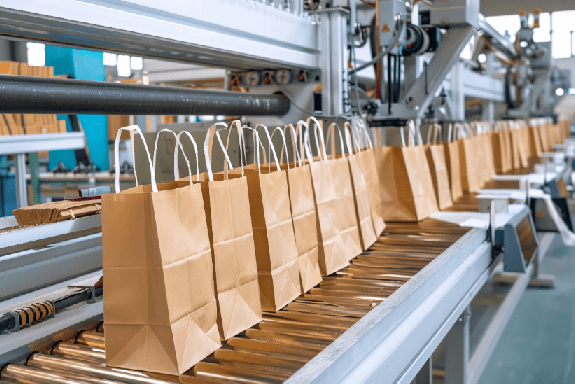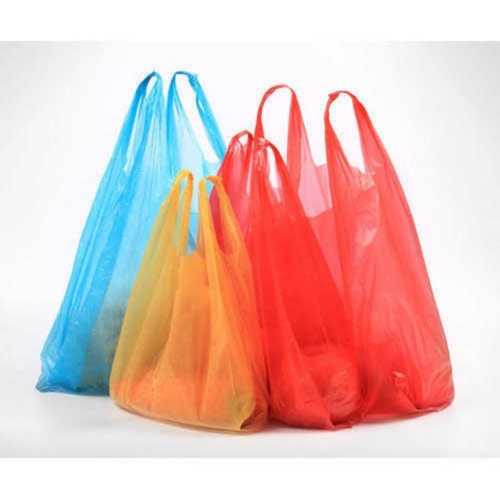Why Eco-Conscious Brands Prefer Paper Bags Over Plastic

Introduction
As sustainability becomes an undeniable priority in both consumer expectations and corporate responsibility, businesses around the world are reevaluating the environmental impact of their packaging choices. Among the most symbolic and practical shifts in recent years is the move from plastic bags to paper bags. More than just a trend, this transition represents a broader commitment to reducing environmental harm and fostering a greener future.
For eco-conscious brands, packaging is no longer just about utility, it’s about storytelling. Packaging communicates a company’s values, ethics, and commitment to a healthier planet. As awareness grows about the dangers posed by plastic pollution, brands are increasingly opting for paper bags to align their public image with sustainable practices.
But why are paper bags gaining such widespread favor, especially among brands committed to eco-conscious business models? What makes them superior to their plastic counterparts from both ecological and marketing standpoints? In this comprehensive exploration, we’ll uncover the science, strategy, and societal shifts that explain why paper bags are now the packaging material of choice for environmentally responsible brands.
The Environmental Case Against Plastic Bags
Plastic bags have been a mainstay in global retail and commerce for decades, thanks to their convenience, durability, and low cost. However, their environmental drawbacks have come under sharp scrutiny in recent years, leading to bans and restrictions in many countries.
1. Persistence in the Environment
One of the primary issues with plastic bags is their longevity. Conventional plastic bags can take hundreds of years to decompose fully, breaking down into microplastics that contaminate soils, waterways, and marine ecosystems.
2. Impact on Wildlife
Countless marine animals and birds mistake plastic bags for food, leading to ingestion, suffocation, and often death. Floating plastics in oceans have been linked to the formation of massive garbage patches like the Great Pacific Garbage Patch.
3. Challenges with Recycling
While plastic recycling exists, the infrastructure to effectively process lightweight plastic bags is lacking in many regions. Contamination, high recycling costs, and insufficient consumer participation make recycling an unreliable solution for plastic bag waste.
4. Contribution to Climate Change
The production of plastic bags relies heavily on petroleum-based feedstocks. This process contributes to greenhouse gas emissions, exacerbating climate change concerns. Given these significant environmental threats, brands looking to demonstrate environmental leadership cannot ignore the damaging lifecycle of plastic bags.
The Benefits of Paper Bags for Sustainable Branding
Paper bags, while not entirely without environmental impact, present a markedly greener profile compared to plastic bags. When responsibly sourced and produced, paper bags offer both functional and environmental advantages that resonate strongly with eco-conscious consumers.
1. Biodegradability and Compostability
Unlike plastic, paper bags are biodegradable. They decompose naturally within weeks or months, depending on environmental conditions, without leaving harmful residues behind. Many paper bags are also compostable, breaking down into organic matter that enriches soil.
2. Renewable Material Source
Paper bags are typically made from renewable resources, such as sustainably managed forests or recycled paper content. Sustainable forestry practices ensure that trees harvested for paper production are replenished, maintaining ecological balance.
3. Reduced Marine Pollution
Because paper dissolves easily in water and does not persist in marine environments, switching to paper bags dramatically reduces the threat of pollution to marine life.
4. Lower Carbon Footprint (When Recycled)
Although the initial energy inputs for manufacturing paper can be high, paper bags made from recycled content have a considerably lower carbon footprint compared to their virgin-material counterparts. Encouraging recycling loops further amplifies their environmental benefits.
5. Recyclability
Paper bags are widely recyclable in most municipal waste systems, allowing them to enter circular economy models far more efficiently than plastic bags.
6. Positive Consumer Perception
Perhaps one of the most influential factors for brands is consumer perception. Studies consistently show that customers view paper-packaged goods more favorably in terms of eco-friendliness. This perception directly influences purchasing behavior and brand loyalty.
Paper Bags as a Branding and Marketing Tool
Today’s packaging is not merely functional, it is a marketing asset. Eco-conscious brands leverage paper bags as powerful vehicles for storytelling, consumer engagement, and corporate responsibility.
1. Customizable Designs
Paper bags offer exceptional versatility for customization. Whether it’s elegant embossing, full-color graphics, or minimalist kraft-style finishes, brands can craft distinctive visual identities on paper bags that convey sophistication and care for the planet.
2. Association with Eco-Ethics
The mere act of providing products in a paper bag signals an alignment with environmental awareness, appealing to demographics that prioritize sustainability in their purchasing decisions. For eco-conscious brands, this subtle association builds long-term credibility.
3. Encouraging Reuse
Thicker, sturdier paper bags often become reusable assets for consumers. By encouraging reuse, brands extend the exposure of their logos and messaging, creating marketing impressions that last well beyond the initial purchase.
4. Corporate Social Responsibility (CSR)
Many eco-conscious brands incorporate their packaging strategies into broader Corporate Social Responsibility campaigns. By doing so, they position themselves as leaders in sustainability, distinguishing their offerings from competitors in crowded marketplaces.
Why Brands Prefer Local Suppliers for Paper Bags
For companies in regions like Singapore, sourcing paper bags from local manufacturers brings additional benefits beyond environmental considerations:
Reduced Transportation Emissions: Local sourcing minimizes the carbon footprint associated with long-distance shipping.
Shorter Lead Times:Working with nearby manufacturers ensures faster delivery cycles and better supply chain reliability.
Customized Service:Local partnerships enable more tailored solutions and greater responsiveness to specific brand needs.
Support for Local Economies: By choosing local suppliers, brands also contribute to regional economic development.
Partnering with a Leading Paper Bag Manufacturer in Singapore
In the journey toward sustainability, collaborating with a trusted Paper Bag Manufacturer in Singapore is a critical step for brands that want to ensure both environmental responsibility and premium product quality. Local manufacturers familiar with Singapore’s environmental goals and market dynamics are ideally positioned to meet the demands of eco-conscious brands.
Working with an established Paper Bag Manufacturer in Singapore ensures that the materials used are sourced responsibly, production processes comply with eco-standards, and the finished product aligns perfectly with the brand’s sustainability narrative.
Why Green Packs Is the Preferred Paper Bag Manufacturer in Singapore
Among the leading names in sustainable packaging solutions, Green Packs stands out as a top choice for eco-conscious brands seeking premium-quality paper bags. As an experienced Paper Bag Manufacturer in Singapore, Green Packs brings an unmatched commitment to environmental stewardship combined with superior craftsmanship.
Green Packs emphasizes the use of FSC-certified paper, recycled content, and water-based inks, ensuring that every bag produced meets the highest eco-friendly standards. Additionally, Green Packs offers fully customizable paper bag designs to help brands deliver not only on sustainability but also on aesthetics and marketing impact.
With a well-established track record of excellence, Green Packs has become the go-to partner for businesses that want their packaging choices to reflect genuine environmental commitment.
Green Packs: The Go-To Supplier for Eco-Conscious Brands
As a trusted Paper Bag Manufacturer in Singapore, Green Packs doesn’t just deliver products—it delivers partnerships. Companies working with Green Packs benefit from:
- Eco-Friendly Certifications: Verifying that products are safe for the environment.
- Local Expertise:Understanding the needs and preferences of Singapore’s eco-conscious consumer base.
- Tailored Solutions: Providing designs, sizes, and materials that fit the unique identity of each brand.
- Reliable Supply Chains:Ensuring that product launches and campaigns stay on schedule without compromising quality.
With Green Packs as their Paper Bag Manufacturer in Singapore, brands gain a valuable ally in their pursuit of sustainable growth and meaningful environmental contributions.
Conclusion
Choose Green Packs for Sustainable Paper Bag Solutions
In today’s competitive landscape, brands cannot afford to overlook the environmental implications of their packaging choices. By making the switch from plastic to paper bags, eco-conscious brands demonstrate leadership, responsibility, and alignment with modern consumer values.
Choosing a reputable partner like Green Packs, a leading Paper Bag Manufacturer in Singapore, ensures that businesses stay true to their green commitments while benefiting from exceptional quality, customizability, and local expertise.
For brands seeking not just packaging, but a powerful sustainability statement, Green Packs delivers paper bags that are as conscientious as they are captivating helping brands grow responsibly while protecting the planet for future generations.










































